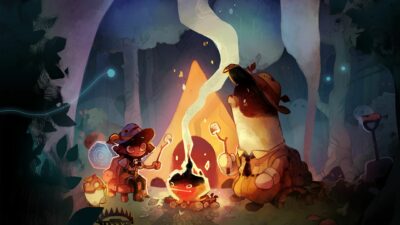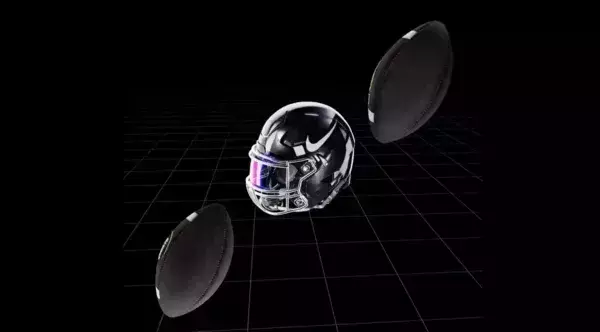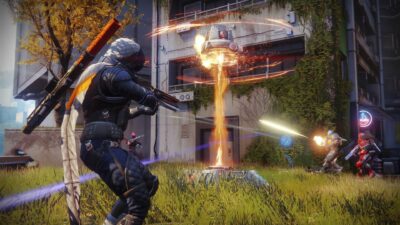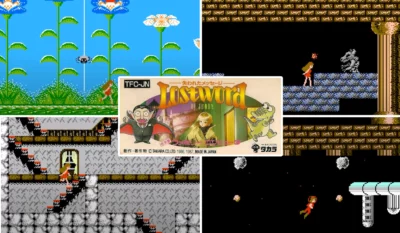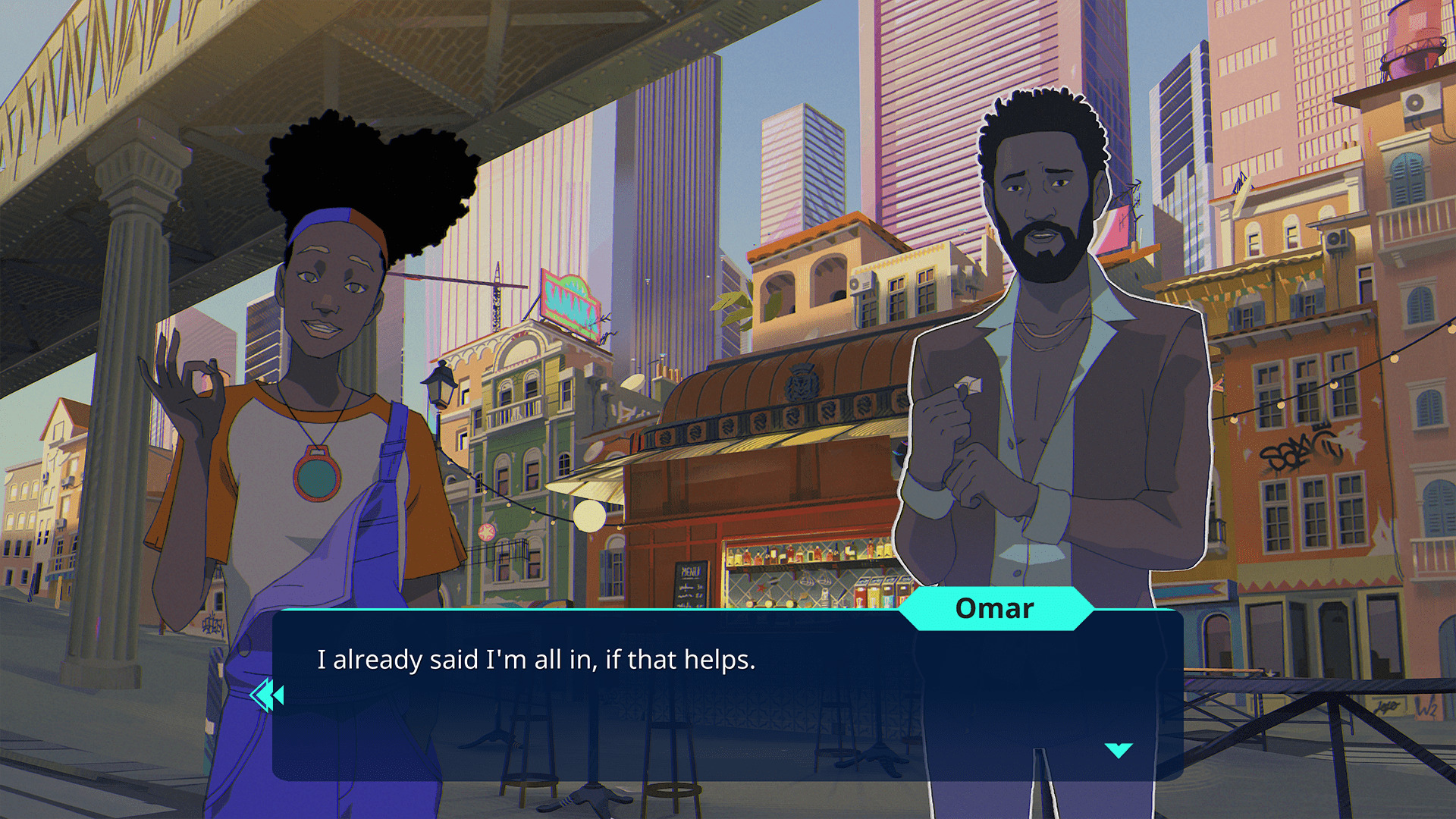
Harmony: The Fall of Reverie might be Don’t Nod’s most intimate story-led adventure yet. We go hands-on with the latest game from the makers of Life is Strange.
There’s a lot to absorb in the opening hours of Don’t Nod’s latest story-led adventure. Playing the first acts in an extended preview demo, it immediately feels more experimental and lower key than the Life Is Strange series, giving off a scent not dissimilar to that of a visual novel. At the same time, though, it still has one of those ‘super power’ hooks we’re used to from the French studio, here designed to let you rummage around in the nuts and bolts of conversations, guiding them where you want them to go.
The plot unfolds from an alternate version of Atina (Athens), now one of the most technologically advanced cities in the world, mostly thanks to the shady grasp of a tech giant known as MK. Protagonist Polly grew up in the area, and now returns to look for her mother, Ursula, who recently disappeared. This backstory, along with Polly’s mixed feelings about coming back to these parts, unfurl in sharp animated cutscenes and lush painted backgrounds.
Even at this early stage, you begin to understand that Polly’s relationship with her mother is a difficult one, and that Harmony is as much about feelings and internal struggles as it is about plot points and words. When it later comes to the conversations you’ll have trying to get people to help you in your search for Ursula, your goal may be information, but Harmony also likes to hover over the relationships that exist between Polly and her interlocutors, how much trust they share, what kind of power dynamic there may be, and so on.
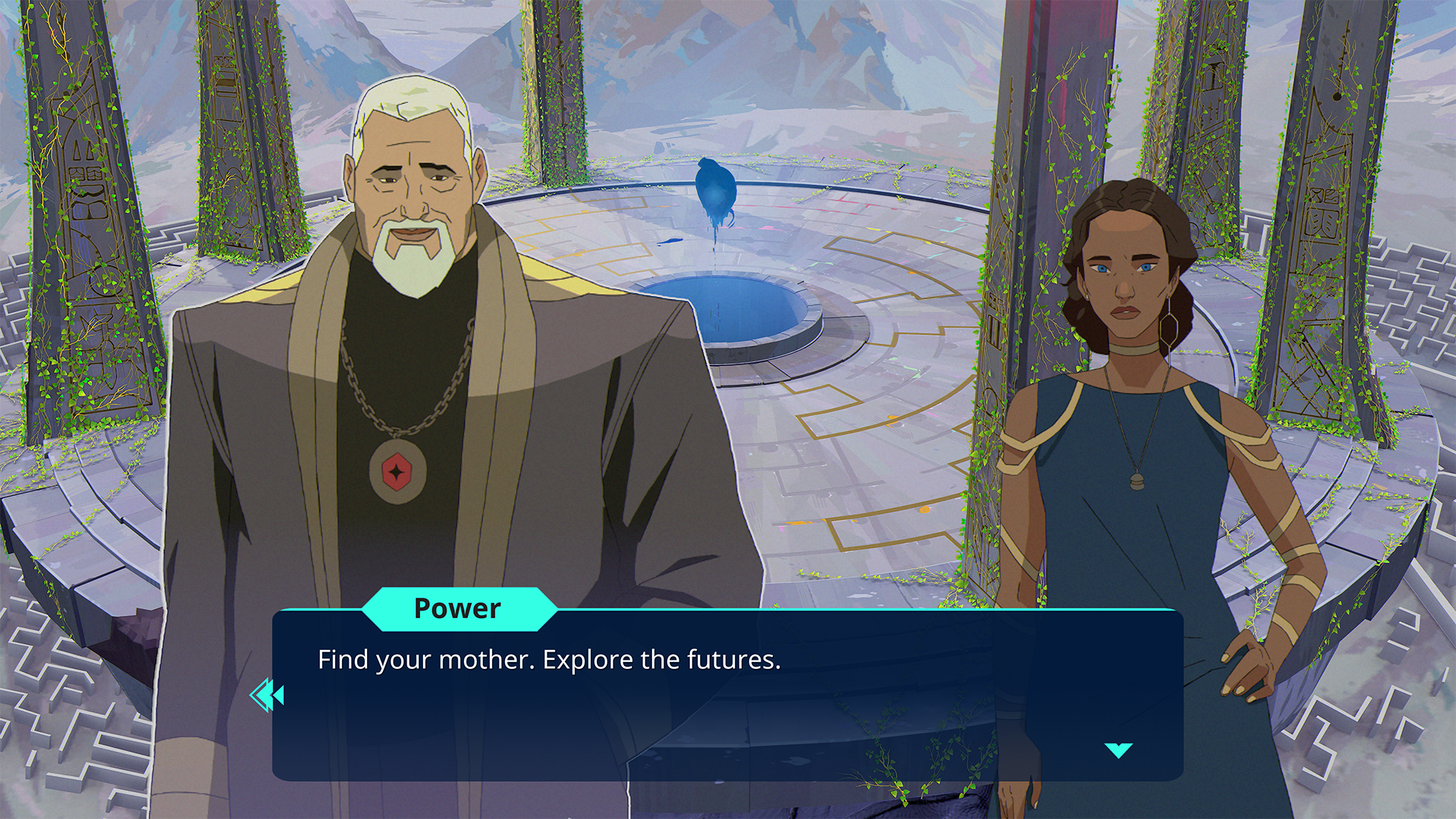
Some compelling personal and social themes lie at the heart of Harmony's story. Credit: Don’t Nod.
Before you get to that, though, events take a turn for the strange, because of course there’s a supernatural element at play here, and Harmony really pushes the boat out with this one. Polly is whisked off to another dimension, where a young girl named Bliss bombards her with unfamiliar proper nouns – Reverie, Brittle, Aspirations, Egregore. Polly is understandably bewildered, and you might be too. The short explanation here is that this dimension (Reverie) is a place where concepts such as Bliss and Power manifest in human form, that Polly has an ability to see the future, that these people need her help, and that all of this has something to do with Ursula.
Polly’s newfound clairvoyancy then provides the interactive side of Harmony, with the idea that it enables you to fiddle with branching conversations to reach a preferred outcome. Back in regular reality, each scene in your investigative efforts is represented on a map screen as nodes and connecting strings, giving you some notion of where a meeting may end up so you can choose what to say next according to the direction you’d rather take. It’s a little like being shown the inner workings of a conventional dialogue tree, the kind you might find in Life Is Strange, so you understand how it fits together before opening your mouth.
At the same time, decisions link to one of the ‘Aspirations’ (the collective name for the Reverie folk), whose priorities and personalities match their names. Bliss is pleased if you choose the path of least resistance to keep everyone happy, for example, while Power is all about being assertive and stamping your authority on discussions. When your choices align with their preferences, they reward you with their personal crystals, which you’ll need to unlock certain conversation branches. And sometimes, those alignments have knock-on effects in later conversations, but since you can’t see that far ahead, you’ll cross that bridge when you come to it.
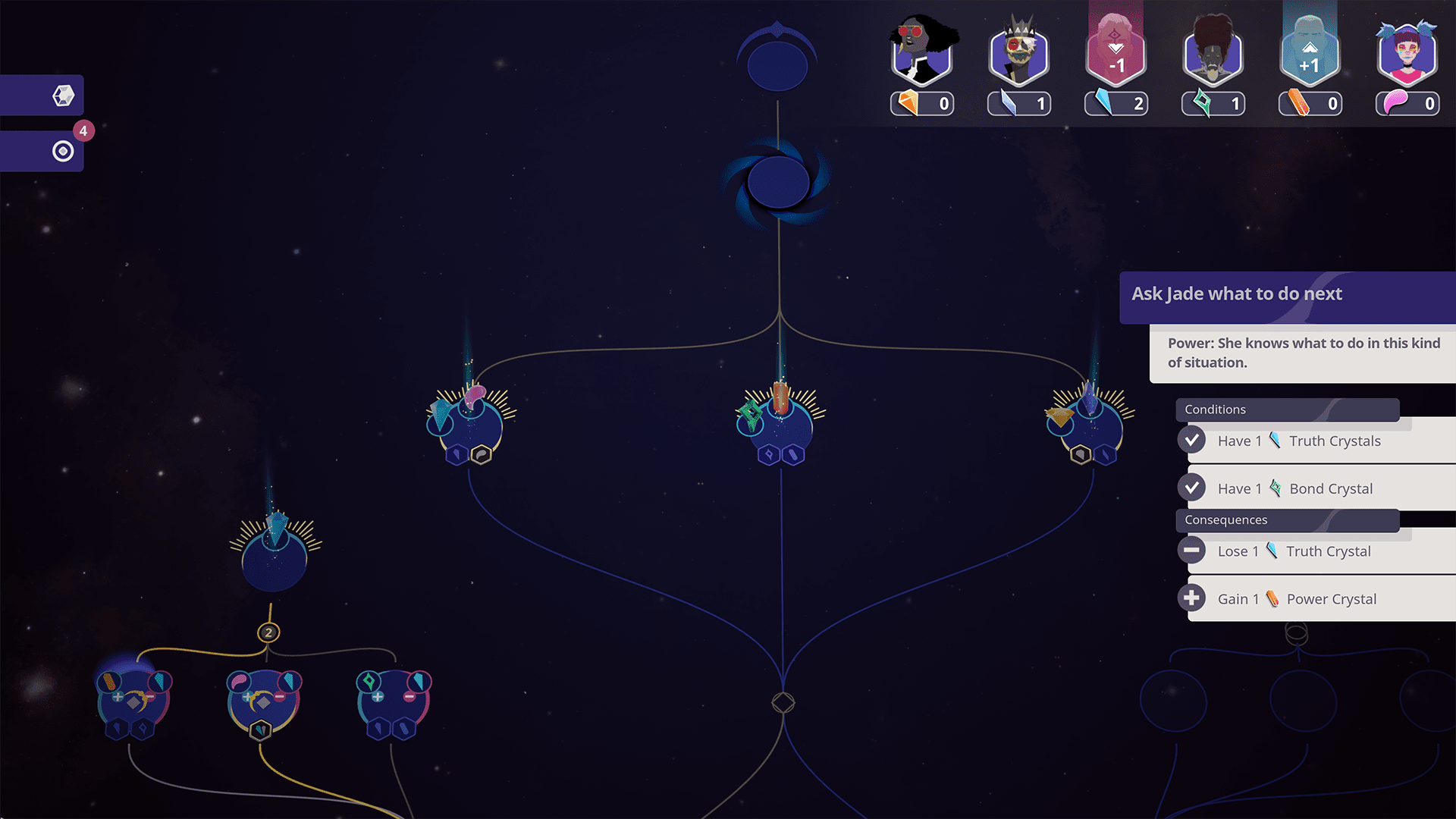
Harmony’s dialogue trees take some getting used to, but the could have a monumental impact on how the story pans out. Credit: Don’t Nod.
All clear so far? Don’t worry if not – it does take a little getting used to. What you may find, though, is that despite a lot of important-sounding jargon, the first few times you get to apply these techniques, it doesn’t feel all that different from making dialogue choices in any other game after all. It’s interesting to witness how selecting a node locks off another, or how some paths open up depending on prior decisions, but that insight hardly makes an earth shattering difference when you’re electing, say, whether to talk to Polly’s stepsister Nora or stepfather Laszlo instead.
A few of your interventions are unconvincing, too. Nora explains that she’d had a big fight with Ursula, who was angry at her for considering a job offer from MK, and the two hadn’t spoken since. You may then gently mention that taking the job really might be a bad idea, and Nora swiftly changes her mind. Why the big argument if she could be so easily swayed?
Towards the end of the preview, however – which covered two hours or so of the game – it does start to become clear how tinkering in dialogue trees might become more monumental. In part that’s because you’re effectively empowering one or more of the characters in Reverie through your actions, which will presumably determine what happens over there. But also the trees themselves become more intricate, with branches and, er, twigs triggering each other. You’re even introduced to the concept of non-linear time, so you can follow certain paths for a while then circle back to others.
More importantly, even if the interactivity in Harmony does turn out to be limited, this promises to be a compelling story. The animation, script and voicework are all accomplished, especially when it comes to emphasising the contrast between the citizens of Atina and those of Reverie. The former speak naturally, with awkward pauses that reflect their uncertainties. The latter stick to singular traits in accordance with their names, from the bouncy Bliss to the far more solemn Truth – a range reminiscent of the Olympian gods in Hades.
Still, it may be the earthly concerns that steal the limelight in Harmony above the supernatural ones. While Reverie is an intriguing place – with some gorgeous scenery – the personal and social themes here seem to offer real substance. On one hand, that means dipping into a backdrop of corporate power and political activism. On the other, it means caring about the anxieties and desires of individuals trying to get by, and an unconventional family you just want to see happy.
In really zooming in on the building blocks of every conversation, Don’t Nod may have created its most intimate experience yet.
Harmony: Fall of Reverie is due for release in June for PS5, PC, Xbox Series X/S and Nintendo Switch.


